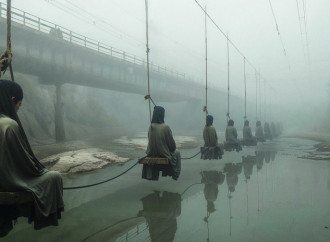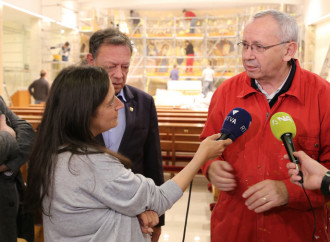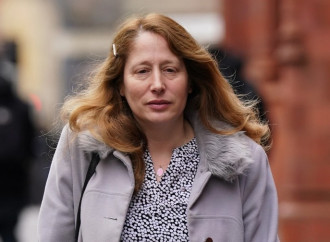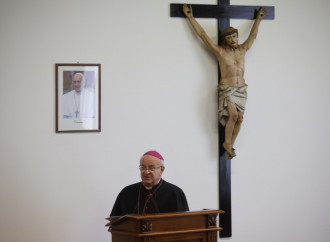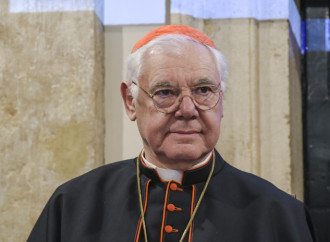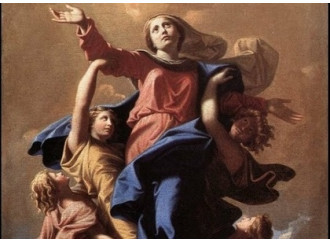Can trans athletes compete in women’s sport? As long as it's for Italy
An Italian trans woman Valentina Petrillo is competing in this year’s August Paralympics. But, where are the centre-right politicians now? Only a month ago they were raging about the ‘Imane Khelif case’. Gender ideology and its harms must be contested consistently otherwise politicians lose all their credibility.
The paedophile party advances at the UN, thanks to the EU and USA
The new UN treaty against paedophilia will be softened, because of the EU and the US support. Their delegations, in fact, are demanding exceptions to the criminalisation of child pornography, excluding artificial images and even ‘consensual’ sex of minors from prosecution.
Irregular migrants, now the Italian bishops take to the sea
For the first time, a ship financed by the Italian Episcopal Conference's Migrantes Foundation is taking part in rescue operations for illegal migrants in the Mediterranean; and with the ‘blessing’ of the Pope. A decision that abdicates the Church's true task and instead identifies with an ideologically motivated side.
Trafficking in aborted foetuses, Open's wacky fact-checking debunked
Open, in agreement with Meta, brands the recent Nuova Bussola/Daily Compass article on videos showing the trafficking of aborted baby parts as fake news: videos which were also covered up by Kamala Harris. But the tendentious fact-checking fails on every account to refute the information written in our article.
The race for the White House, between age comparisons and teleprompter
If you look at the ages of the presidential candidates, there are similarities between 1984, when Reagan ran for re-election, and today. The Democrats cannot use the age difference argument with Trump: they would score a home goal. Experience and vitality count more than age. And Harris’ dependence on the teleprompter....
Rupnik case, endless shame for the Vatican
The Dicastery for Communication continues to re-propose the works of the former Slovenian Jesuit accused of serious sexual abuse, in defiance of Cardinal O'Malley's dispositions. And even in Bologna, Archbishop Zuppi has given the green light to the completion of the incriminated mosaics. In the fight against abuse this pontificate has no credibility.
Prayer against abortion, British police pay compensation for wrongful arrest
Isabel Vaughan Spruce receives £13,000 and an apology in an out-of-court settlement for being arrested twice. It’s a major victory for pro-lifers but the new Labour government promises new clampdowns.
‘Vaccines did not stop Covid’: increases bishops’ moral guilt
The Italian Medicines Agency's admission that anti-Covid vaccines were ineffective in preventing contagion reopens the question of their lawfulness. Including on the subservience of the pastors who, without asking questions, pushed for mass inoculation.
‘Sufferance does not redeem’: PAV anaesthetises Redemption
In the notable controversial volume on the end of life the meaning of Salvifici doloris is turned upside down by denying that suffering can have redemptive value. If this were the case, the Passion of Christ would have been incidental.
A false scoop against Müller reveals nothing new
At the basis of the German cardinal’s early retirement lies a presumed scandal about the funds of the former Holy Office. But, the anonymous ‘revelation’ by The Pillar only recycles facts already known for years. And from which the former prefect emerges innocent.
Despite so many speak with hatred, we speak of prayer
On the Solemnity of the Assumption the Daily Compass adheres to the appeal of the Latin Patriarch of Jerusalem, Cardinal Pierbattista Pizzaballa, for a prayer of intercession to the Blessed Virgin Mary for peace.
- Prayer to our Lady of the Assumption

